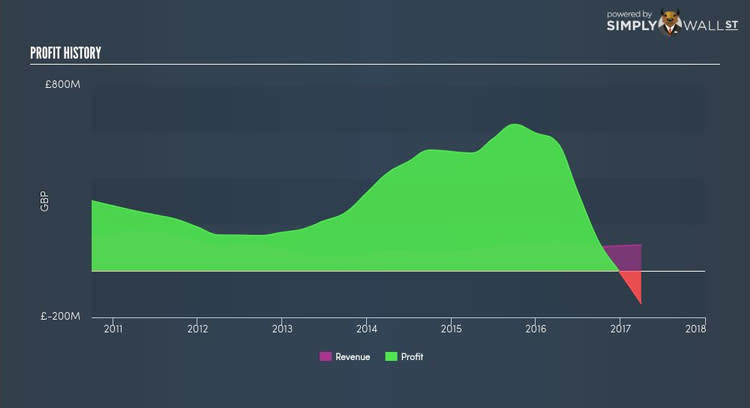Great Portland Estates plc (LSE:GPOR): Risks You Need To Consider Before Buying

If you are looking to invest in Great Portland Estates plc’s (LSE:GPOR), or currently own the stock, then you need to understand its beta in order to understand how it can affect the risk of your portfolio. Generally, an investor should consider two types of risk that impact the market value of GPOR. The first type is company-specific risk, which can be diversified away by investing in other companies to reduce exposure to one particular stock. The second type is market risk, one that you cannot diversify away, since it arises from macroeconomic factors which directly affects all the stocks in the market.
Not every stock is exposed to the same level of market risk. A widely-used metric to measure a stock's market risk is beta, and the broad market index represents a beta value of one. A stock with a beta greater than one is considered more sensitive to market-wide shocks compared to a stock that trades below the value of one.
View our latest analysis for Great Portland Estates
What is GPOR’s market risk?
Great Portland Estates's beta of 0.61 indicates that the stock value will be less variable compared to the whole stock market. This means the stock is more defensive against the ups and downs of a stock market, moving by less than the entire market index in times of change. GPOR’s beta indicates it is a stock that investors may find valuable if they want to reduce the overall market risk exposure of their stock portfolio.
Could GPOR's size and industry cause it to be more volatile?
GPOR has a market capitalization of GBP £2.02B, putting it in the category of established companies, which are found to experience less relative risk compared to small-sized companies. However, GPOR operates in the real estate industry, which has commonly demonstrated strong reactions to market-wide shocks. As a result, we should expect a low beta for the large-cap nature of GPOR but a higher beta for the real estate industry. This is an interesting conclusion, since its industry suggests GPOR should be more volatile than it actually is. A potential driver of this variance can be a fundamental factor, which we will take a look at next.
Is GPOR's cost structure indicative of a high beta?
During times of economic downturn, low demand may cause companies to readjust production of their goods and services. It is more difficult for companies to lower their cost, if the majority of these costs are generated by fixed assets. Therefore, this is a type of risk which is associated with higher beta. I examine GPOR’s ratio of fixed assets to total assets to see whether the company is highly exposed to the risk of this type of constraint. Considering fixed assets account for less than a third of the company's overall assets, GPOR seems to have a smaller dependency on fixed costs to generate revenue. As a result, the company may be less volatile relative to broad market movements, compared to a company of similar size but higher proportion of fixed assets. Similarly, GPOR’s beta value conveys the same message.
What this means for you:
Are you a shareholder? You could benefit from lower risk during times of economic decline by holding onto GPOR. Its low fixed cost also means that, in terms of operating leverage, it is relatively flexible during times of economic downturns. Consider the stock in terms of your other portfolio holdings, and whether it is worth investing more into GPOR.
Are you a potential investor? You should consider the stock in terms of your portfolio. It could be a valuable addition in times of an economic decline, due to its low fixed cost and low beta. However, I recommend you to also look at its fundamental factors as well, such as its current valuation and financial health to assess its investment thesis in further detail.
Beta is one aspect of your portfolio construction to consider when holding or entering into a stock. But it is certainly not the only factor. Take a look at our most recent infographic report on Great Portland Estates for a more in-depth analysis of the stock to help you make a well-informed investment decision. But if you are not interested in Great Portland Estates anymore, you can use our free platform to see my list of over 50 other stocks with a high growth potential.
To help readers see pass the short term volatility of the financial market, we aim to bring you a long-term focused research analysis purely driven by fundamental data. Note that our analysis does not factor in the latest price sensitive company announcements.
The author is an independent contributor and at the time of publication had no position in the stocks mentioned.

 Yahoo Finance
Yahoo Finance 
